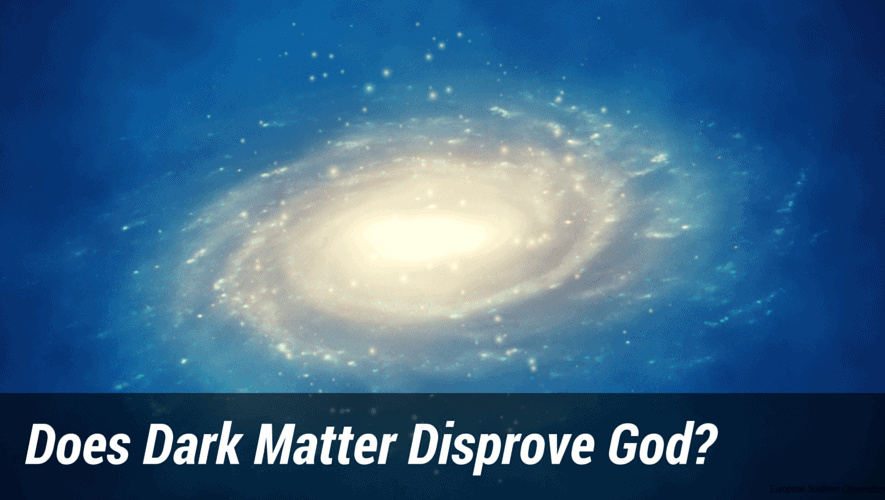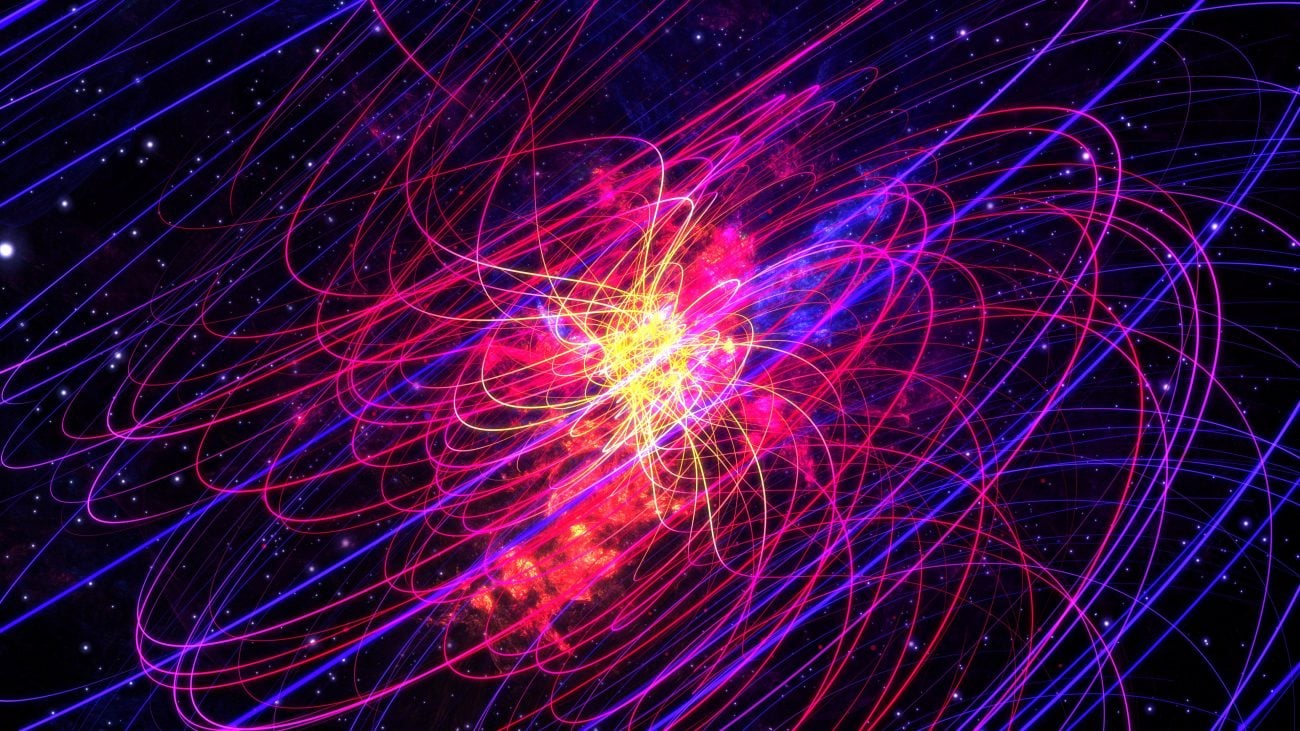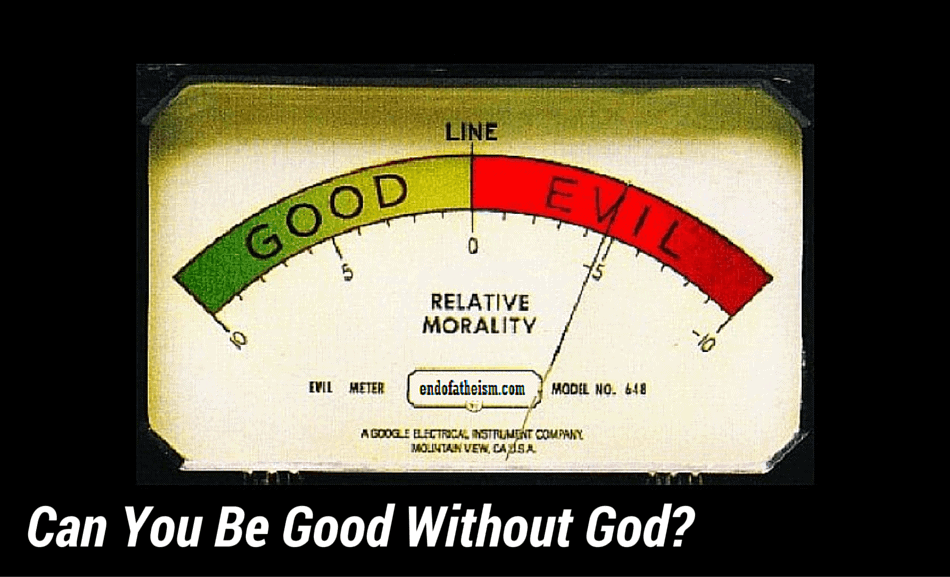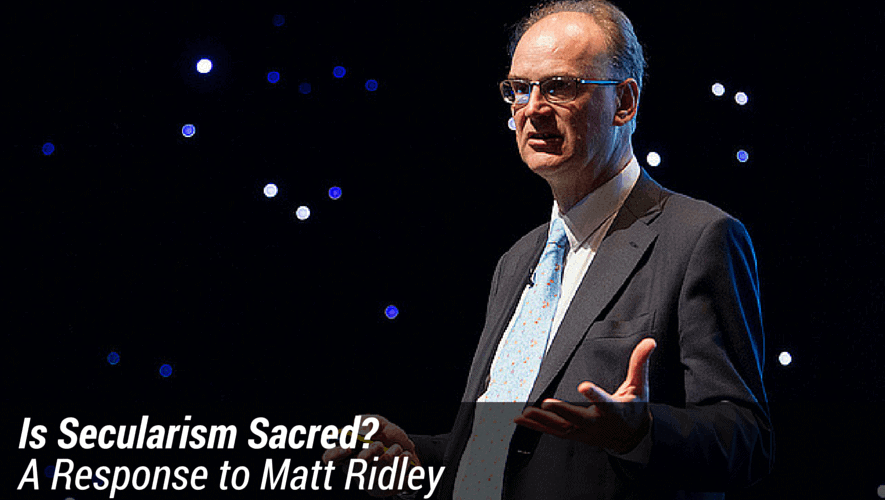Does the existence of space disprove the existence of God? (No seriously). It’s taken from Victor J. Stenger’s “God: The Failed Hypothesis.” Here’s what he says in that book, followed by our thoughts:
“It is commonly thought that the universe is an intricately complex place. However, taking an overview we can see that this is a selection effect resulting from the fact that we and our planet are relatively complex. Most of the matter and energy of the universe exhibits little structure and shows no sign of design. We noted above that 96 percent of the mass of the universe appears to be composed of dark matter and dark energy whose exact natures are unknown but that are definitely not composed of familiar atomic matter. As far as we can tell, these components have little structure. The very low energy photons in the cosmic microwave background radiation are a billion times more plentiful than the atoms in galaxies. These particles are spread uniformly throughout the universe to one part in a hundred thousand. They move around almost completely randomly, as if they were a gas in thermal equilibrium having maximum entropy and at a temperature only three degrees above absolute zero on the Kelvin scale. The little structure that is seen is understood as the remnant of random fluctuations that took place in the early universe and helped trigger galaxy formation. Again, absence of design is evident.”
God: The Failed Hypothesis; Victor Stenger; p. 162
The above extract presents a twist on a common atheistic argument- that whilst the universe is highly complex, it only has the illusion of design- an illusion we are fooled by, being the product of such complexity. We suffer unknowingly from selection bias- that is, we are amazed by the complexity of the universe, without realising that if the universe was not as it was, there would be no one around to be amazed by it. This however, is a deceptively pointless statement- being able to observe something highly improbable does not make it any less improbable, and the improbable complexity of the universe is the focus of the above argument.
Theists say that the universe is highly ordered and highly complex. Being so, it necessitates a Designer to have fashioned it so. Here, renowned particle physicist Victor Stenger argues that the universe, overall, cannot be said to be designed because overall it does not have much of that wondrous complexity theists rave about. Rather, it only has small pockets of complexity, which over-credulous theists mistake for design.
To support this, he says that on a quantitative scale, 96% of our universe is composed of dark matter and dark energy, which according to our current knowledge, has ‘little structure.’ He then writes that background radiation photons move around in a manner that is ‘almost’ completely random. Whether he wants them to whizz around spelling ‘God’ is not known, but after describing their apparently unremarkable states, he concludes that design is absent, because the majority of the universe seems to have little structure, and little complexity.
However, as attested to by his habit of constantly qualifying statements with doubt, (‘seems,’ ‘almost,’ ’as far as we can tell’), his assertion that the majority of the universe has little structure is based on very limited knowledge, making his whole argument rather dubious right from the get go. Besides, it would be interesting to know exactly what level of complexity and structure he would deem complex enough to imply design. It seems to be an arbitrary line that he is drawing for what constitutes a lack of complexity and design, and what doesn’t. When, as is inevitable, we find out more about dark matter, and let’s say it turns out it is quite complex, he could just turn to another area of science that we don’t know much about, and say ‘look- that doesn’t seem so complex! Therefore the universe as a whole is not complex, and therefore there is no design!’ But this is clearly quite perverse logic. It’s akin to walking into a dark room and declaring it empty, just because there’s no light to see inside it.
Even if we were to foolishly accept that dark matter and dark energy are ‘uncomplex,’ it is freely admitted that, alongside with dark energy, it forms a huge percentage of the universe. We also now it plays an absolutely crucial role in the expansion of our universe, in the formation of galaxies, among many other functions. So it’s quite obvious dark matter and dark energy play an integral role in the overall structure of the observable universe. And this, tip-of-the-iceberg, observable universe, is quite clearly complex. This fact is not disputed by any sane mind, not even Stenger’s. Thus to isolate the basis of a complex system and argue it is not complex, and therefore the system as a whole is not complex, is sheer folly. It’s like saying that a beautiful palace has no beauty because it’s made up out of simple stone, or that the human body is not complex because the majority of it is water- and water’s just H20! When trying to study a vastly complex system, one cannot isolate elements and extrapolate meaning, superimposing that restricted meaning on a much grander scheme. Rather, one must study the composite whole, and then derive understanding. This principle can be applied across sciences and disciplines- for how many a criticism has been levelled against Islam on the basis of a few out of context words? With regards to Qur’anic interpretation, the Qur’an itself tells us that those who can interpret correctly are those who are firmly grounded in knowledge, who do not isolate verses, but examine all that has been said on a given matter, collectively. “They say, ‘We believe in it; the whole is from our Lord.’” [3:8] Perhaps it would not be inappropriate to apply this principle to the study of nature too.
Returning to the subject at hand, it’s baffling as to why the author seems to separate himself out from the study of the universe. He is most definitely an inhabitant of the universe, and, being human, a highly complex being. They say that the human brain alone is a vast cosmos in and of itself. Thus he must admit that the universe is complex, because it can form the unbelievable complexity found in him, and every other human on this planet. To try and find meaning in terms of scale or %-mass is a rather childish viewpoint- why should physical scale confer meaning? The peak of a mountain is sought after most, despite being its smallest point. Even if they are just flecks in the galactic tapestry, the fact that this universe has produced sentient beings that can reflect over the meaning of their own existence, must bear greatest testimony to the universe’s undeniable order and complexity.
The only question that remains is whether this wondrous complexity is by the will of a Conscious Creator, or merely the offspring of nothingness and chance? This we leave for the reader to decide- let your own personal cosmos chew on that for a while.
Credit: Header image taken from European Space Observatory.












5
4.5